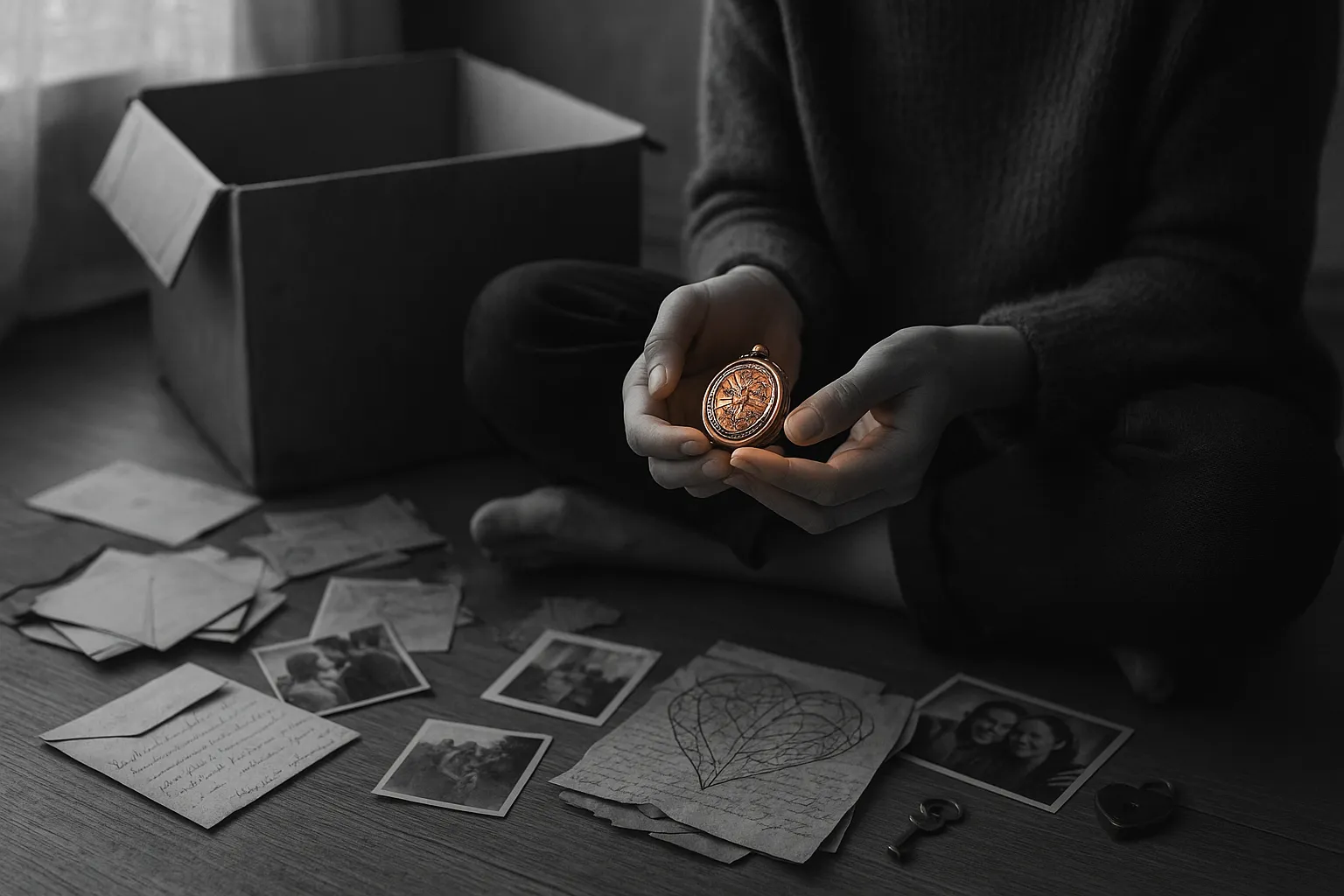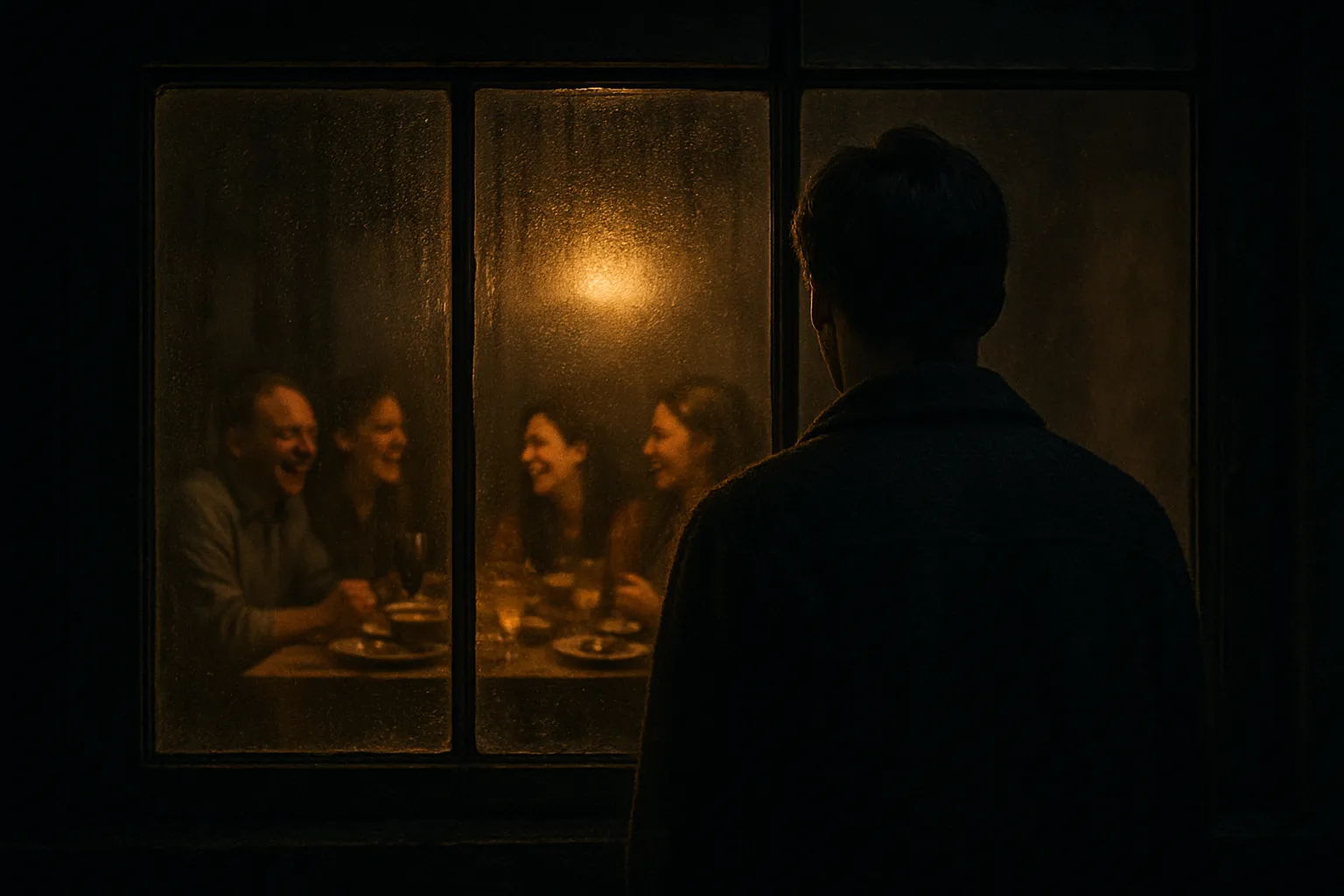What to Do with Gifts and Mementos from Your Ex

The Ghosts of Relationships Past
After a breakup, your own home can feel haunted. The hoodie they left behind, the concert tickets stuck to the fridge, the jewelry they gave you for your birthday—each object is a tangible piece of a shared history, a ghost of a life you once had. Deciding what to do with these mementos can be a surprisingly emotional and paralyzing task. Do you burn everything in a dramatic bonfire? Do you keep it all, tucked away like a shrine? This guide offers a practical, compassionate framework to help you make choices that prioritize your healing, not sentimentality or anger.
The Immediate First Step: Out of Sight, Out of Mind
In the raw, immediate aftermath of a breakup, you should make only one decision about these items: to get them out of your sight. Your emotions are too volatile to make permanent choices you won't regret. The goal right now is to create a neutral, healing environment free from constant, painful triggers.
- Create a "Breakup Box": Get a simple cardboard box or storage bin. Go through your home and gather every single item that strongly reminds you of your ex. This includes photos, gifts, clothing, letters, and trinkets.
- Seal It and Store It: Tape the box shut. Do not leave it in the middle of your room. Put it somewhere inaccessible—the back of a closet, the attic, your parents' garage, or a trusted friend's house.
This is not denial; it's emotional triage. You are giving your heart and mind a clean, quiet space to begin the difficult work of healing.
Making the Call: A Framework for Deciding an Object's Fate
After some time has passed—weeks or even months—and the initial emotional storm has calmed, you can choose to revisit the box. When you feel ready, approach each item with a clear head and ask yourself these questions:
- How does this object make me feel right now? Be honest. Does it spark a flicker of happy nostalgia, or does it trigger a sharp pang of sadness, anger, or regret? If the feeling is predominantly negative, its fate is likely sealed.
- Does this object have a useful life independent of my ex? A beautiful piece of art, a high-quality kitchen appliance, or a classic book can be reclaimed and enjoyed for its own merits. A framed photo of the two of you on vacation cannot.
- What is its practical or financial value? A diamond necklace requires a different consideration than a dried rose. Be practical about items of significant worth.
Your Four Options: Toss, Return, Repurpose, or Keep
Based on your answers, you can sort the items into four categories, each with its own path forward.
- Toss / Donate / Sell: This is for items that cause you pain or have no real value. This includes old love letters, cheap trinkets, or their worn-out clothes. For more valuable items like jewelry or electronics, selling them can be an incredibly empowering act. Use the money to fund a trip, a new hobby, or a celebratory dinner with friends—a symbolic act of turning past pain into future joy. Donating items gives them a positive new life elsewhere.
- Return: Use this option sparingly and without emotion. This is ONLY for essential items that belong to them (like house keys, important documents) or true family heirlooms (like a grandparent's ring). Do not use this as an excuse to see them. If you must return something, have a mutual friend do it or mail it. Make the process as brief and impersonal as possible.
- Repurpose / Reclaim: This is a powerful way to take back your narrative. That beautiful vase they gave you? Fill it with fresh flowers that you buy for yourself. That gift card to a fancy restaurant? Take your best friend. A piece of jewelry can be reset by a jeweler into a new design that is entirely yours. You are actively changing the story associated with the object.
- Keep: Reserve this category for the very few items that genuinely bring you more joy than sadness and feel like a part of *your* story, not just *your shared* story. Perhaps it's a souvenir from a trip that was more about the destination than the relationship, or a book that truly changed your perspective. If it can exist in your space without being a constant monument to your ex, it's okay to keep.
Curating a Space for Your Future
This process is more than just decluttering. It's a deeply symbolic act of emotional curation. With each decision, you are consciously choosing what memories, what energy, and what objects you want to carry forward into your next chapter. By respectfully letting go of the things that anchor you to the past, you are making beautiful, empty space for a future that is entirely your own.


